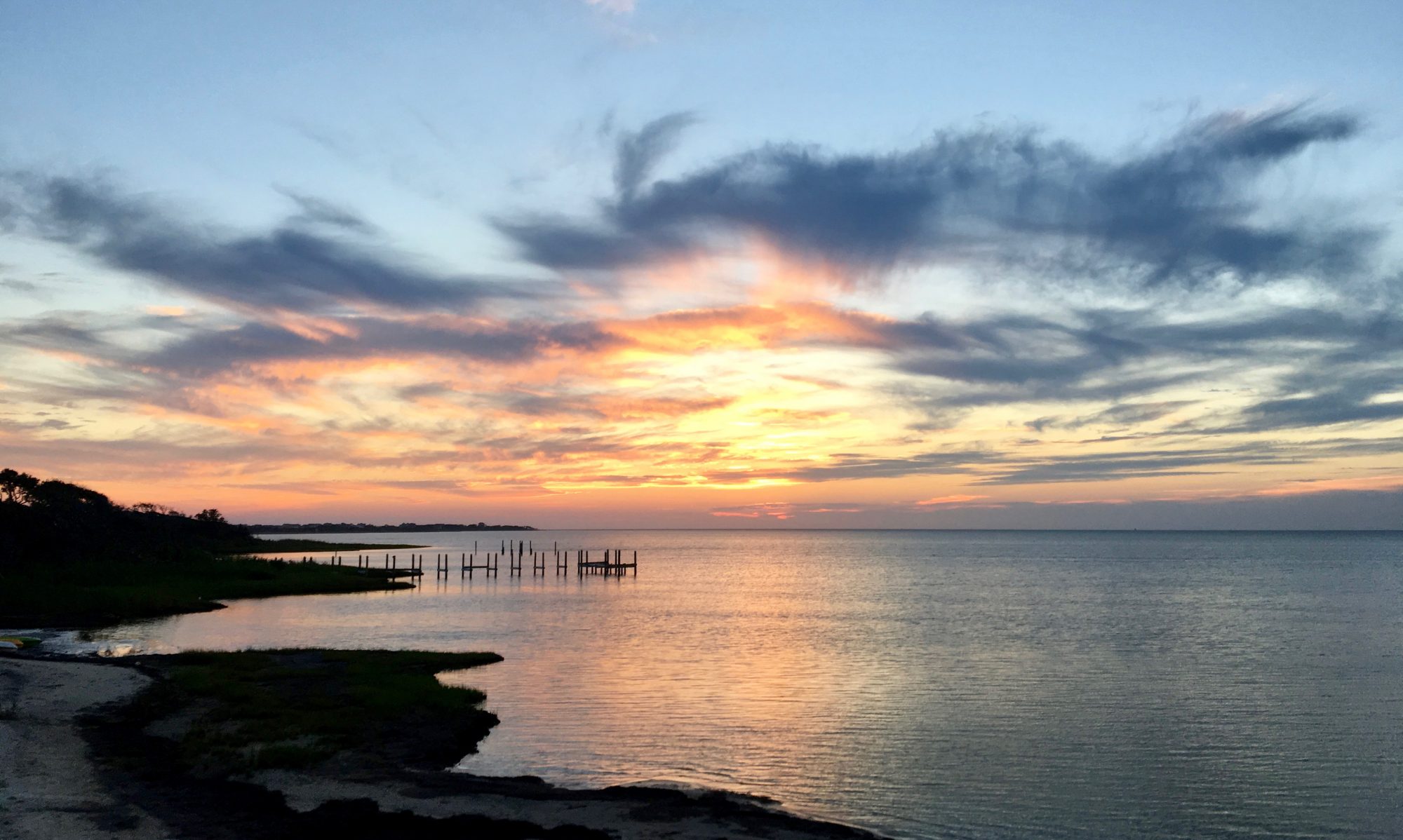Officers
PAUL TICCO (President)
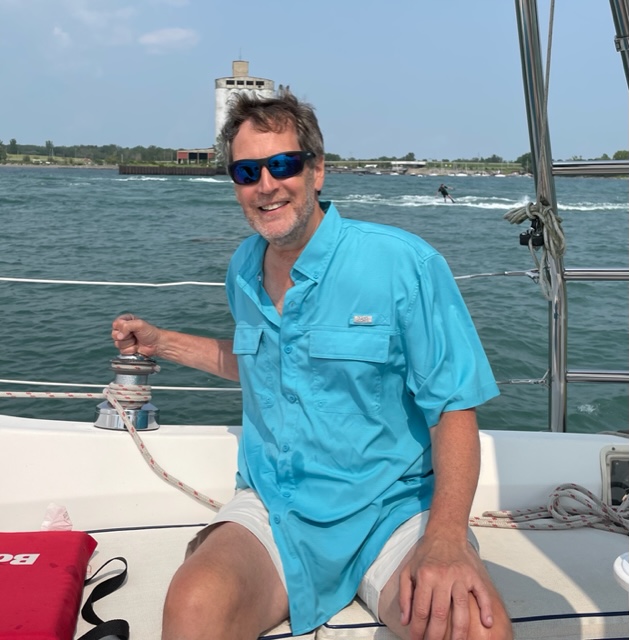
A former President of The Coastal Society (2005-2006), Paul recognizes the unique and prominent value of TCS to coastal and ocean professionals, students, and an interested public; and the extraordinary history of TCS as a leader in analyzing important issues, offering opportunities for dialogue, and informing the coastal community on critical matters.
Currently, he serves as the Senior Marine Scientist and Planner at Scout Environmental Consulting Inc., and as a Great Lakes and Ocean Policy Analyst in New York’s Department of State. Previous positions include the Northeast Regional Coordinator for NOAA’s Office of National Marine Sanctuaries; Assistant Director of the Virginia Graduate Marine Science Consortium; Chief of the Comprehensive Planning Assistance Division of the Critical Area Commission for the Chesapeake and Atlantic Coastal Bays; coastal policy analyst with both NOAA’s Office of Coastal Management and the Woods Hole Oceanographic Institution; and a tenured university professor with teaching and research focused on coastal and ocean resource management, marine policy, and environmental law. Paul is also a member of the editorial board of Coastal Management Journal at the University of Washington, the author of several published works, and has been a frequent speaker at many conferences, seminars and workshops.
Internationally, he represented the Center for International Environmental Law at the UN Informal Consultative Process on Ocean Affairs, and served as an instructor to the Turkish government on local coastal sustainable tourism.
Dr. Ticco holds a B.S. in Aquatic Ecology/Natural Resources Management from the University of Michigan; an M.A. in Marine Affairs/Coastal Management from the University of Virginia; and a PhD in Marine Policy/Ocean Law from the University of Delaware’s Graduate College of Marine Studies.
STEVEN MACLEOD (Past President)
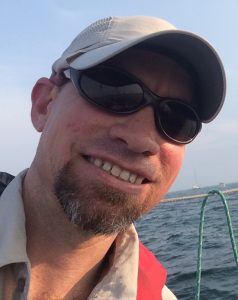
Steven MacLeod has been an Environmental Scientist with WSP USA, Inc. (WSP) in Buffalo, New York, since 2019, following WSP’s acquisition of Ecology & Environment, Inc. (E & E). Since 2011, he has primarily assisted clients along the U.S. Gulf and East Coasts with environmental assessments, coastal consistency analyses and permit applications for onshore and offshore natural gas and electric transmission lines, as well as renewable energy projects (wind, solar, marine hydrokinetic).
Before joining E & E, Steve was employed by the Florida Department of Environmental Protection in Tallahassee, Florida. As part of FDEP’s Bureau of Beaches and Coastal Systems, Steve coordinated the evaluation for local and federal shoreline protection projects such as beach nourishment and sand bypass operations primarily along the Atlantic Coast. He was also responsible for reviewing dredge/fill projects in intracoastal waterways and deepwater ports throughout the state, including analyses of potential impacts on water quality and biological resources.
Steve holds a B.S. in Physics from the University of Puget Sound and a M.S. in Oceanography (Coastal Zone Management) from the Florida Institute of Technology. He has been a member of The Coastal Society since 2004. As President-Elect, Steve will support the current efforts of the TCS board and officers to establish the Margaret A. Davidson Career Development Program as a mainstay of the Society. He will also encourage further committee initiatives to modernize and streamline TCS, e.g., through social media outreach and student chapter communications, to better serve our members and ultimately grow our TCS community in the years to come.
EMILY VUXTON (Secretary)
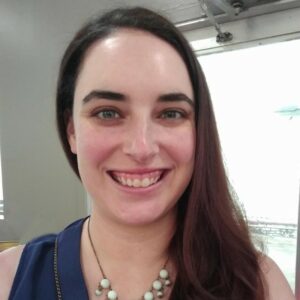 Emily Vuxton is the Director of External Affairs for the Louisiana chapter of the Nature Conservancy. In this role she serves as the liaison for the Louisiana Chapter with federal, state and local government agencies, elected officials, and stakeholder organizations. She has extensive experience in natural resources, infrastructure and water resources policy. Previously she served as the Policy Director at the Coalition to Restore Coastal Louisiana. She has also held policy and project management positions at the U.S. Army Corps of Engineers Institute for Water Resources and the USACE Engineer Research and Development Center where she worked on navigation, flood risk management, recreation and environmental policy initiatives. She was the Assistant Project Manager for PIANC USA, an international coastal and inland navigation organization, and the Assistant Project Manager on the USACE Resilience Initiative. She also has held policy positions at the National Park Service at Great Falls Park, and at U.S. Forest Service Headquarters. She received a Master of Environment Management in Coastal Environmental Management from Duke University where she was a member of the Coastal Society’s student chapter. She also received a Bachelor of Science in Zoology from the University of Florida. In her spare time she is a member of the Audubon Commission in New Orleans and is also a volunteer EMT.
Emily Vuxton is the Director of External Affairs for the Louisiana chapter of the Nature Conservancy. In this role she serves as the liaison for the Louisiana Chapter with federal, state and local government agencies, elected officials, and stakeholder organizations. She has extensive experience in natural resources, infrastructure and water resources policy. Previously she served as the Policy Director at the Coalition to Restore Coastal Louisiana. She has also held policy and project management positions at the U.S. Army Corps of Engineers Institute for Water Resources and the USACE Engineer Research and Development Center where she worked on navigation, flood risk management, recreation and environmental policy initiatives. She was the Assistant Project Manager for PIANC USA, an international coastal and inland navigation organization, and the Assistant Project Manager on the USACE Resilience Initiative. She also has held policy positions at the National Park Service at Great Falls Park, and at U.S. Forest Service Headquarters. She received a Master of Environment Management in Coastal Environmental Management from Duke University where she was a member of the Coastal Society’s student chapter. She also received a Bachelor of Science in Zoology from the University of Florida. In her spare time she is a member of the Audubon Commission in New Orleans and is also a volunteer EMT.
JEFF BENOIT (Treasurer)
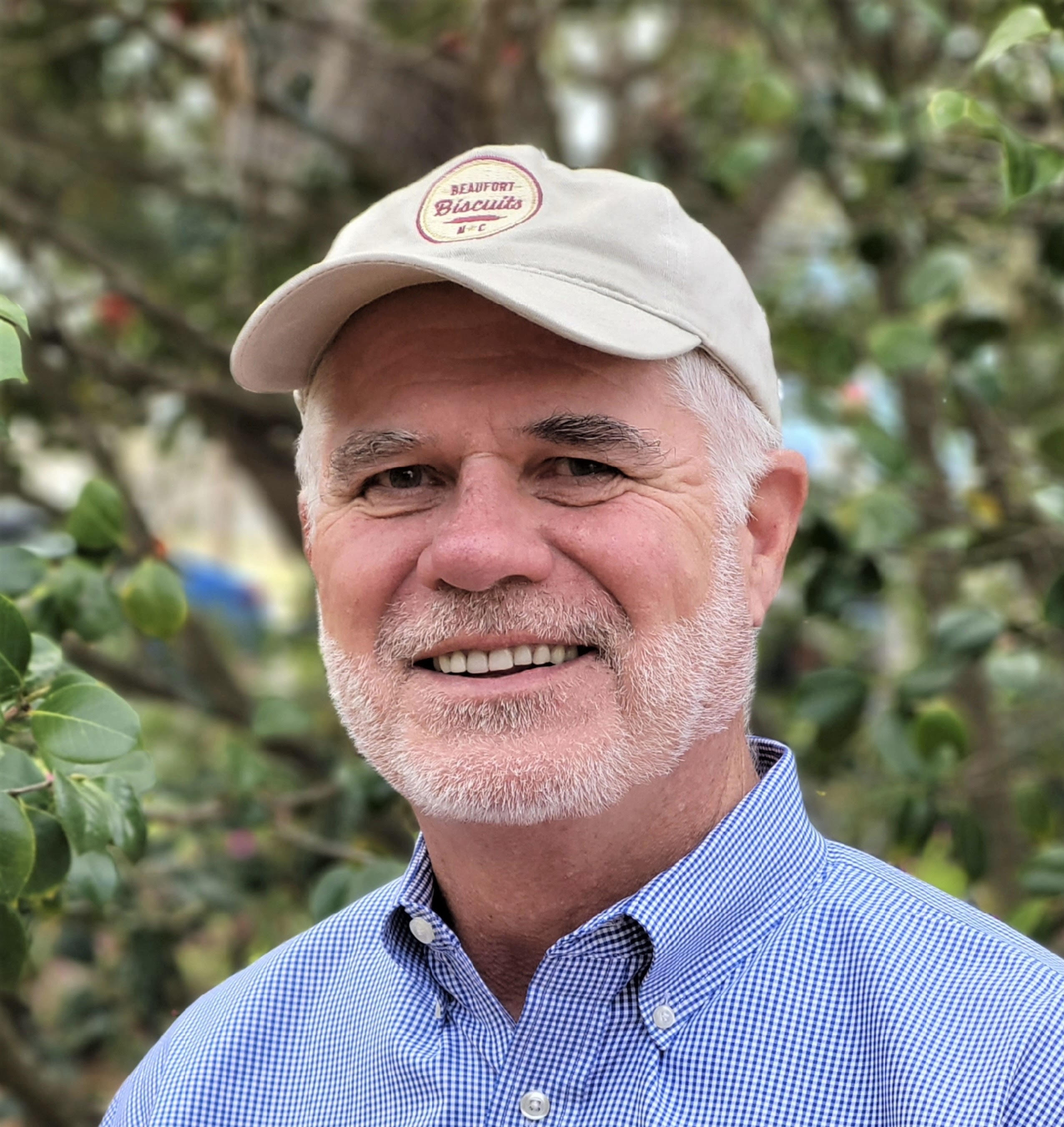 Jeff Benoit has over 45 years of experience and leadership in coastal management and marine conservation. He is a coastal geomorphologist by training, starting his career with the Massachusetts Coastal Zone Management Program as a coastal geologist and later served as a Director. From 1993 to 2001, Jeff was Director of NOAA’s Office of Ocean and Coastal Resource Management (OCRM, now OCM) where he had oversight of the National Coastal Management Program, National Marine Sanctuary Program, and National Estuarine Research Reserve Program. Jeff served as President and CEO of Restore America’s Estuaries from 2007 to when he retired in 2020. Jeff has served on several National Academy of Sciences select Committees on coastal management and was President of The Coastal Society from 2009 through 2010. Following his retirement, Jeff established Beaufort Biscuits LLC, a North Carolina home-based artisan bakery business. He currently serves on the Rachel Carson Estuarine Research Reserve Citizens Advisory Committee (CAC) and the Olde Beaufort Farmers Market Board of Directors.
Jeff Benoit has over 45 years of experience and leadership in coastal management and marine conservation. He is a coastal geomorphologist by training, starting his career with the Massachusetts Coastal Zone Management Program as a coastal geologist and later served as a Director. From 1993 to 2001, Jeff was Director of NOAA’s Office of Ocean and Coastal Resource Management (OCRM, now OCM) where he had oversight of the National Coastal Management Program, National Marine Sanctuary Program, and National Estuarine Research Reserve Program. Jeff served as President and CEO of Restore America’s Estuaries from 2007 to when he retired in 2020. Jeff has served on several National Academy of Sciences select Committees on coastal management and was President of The Coastal Society from 2009 through 2010. Following his retirement, Jeff established Beaufort Biscuits LLC, a North Carolina home-based artisan bakery business. He currently serves on the Rachel Carson Estuarine Research Reserve Citizens Advisory Committee (CAC) and the Olde Beaufort Farmers Market Board of Directors.
Jeff earned a Bachelor of Science degree in Marine Geology from Southampton College and a Master’s Degree in Geophysical Science from the Georgia Institute of Technology/Skidaway Institute of Oceanography.
Jeff is familiar with organizational budgets and financial reports. He currently uses QuickBooks to track the finances of his small business. He looks forward to assisting TCS with a commitment for a full year term and then reassess at the end of the term.
DIRECTORS
LARRY CAHOON
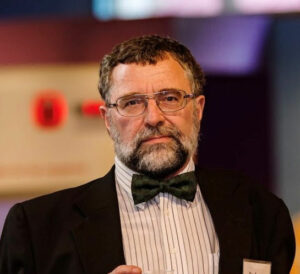
Dr. Cahoon is Professor of Biology & Marine Biology at UNC Wilmington, where he has served on the faculty since 1982. He earned a B.S. in Biology (summa cum laude) at Washington and Lee University in 1975 and a Ph.D. in Zoology at Duke University in 1981. His current teaching portfolio includes an undergraduate Limnology course and graduate courses in Biological Oceanography, Oceans and the Environment, and Coastal Ocean Science and Policy. His research interests include benthic-water column interactions in continental shelf waters, nearshore production and grazing processes, and a wide variety of water quality problems. His policy experiences include service on the North Carolina Marine Science Council, the NC Ocean Affairs Council, a Legislative Study Subcommittee on offshore energy exploration, an Ocean Policy Steering Committee for the NC Division of Coastal Management, as a member of the Board of Directors for Cape Fear River Watch, as Chair of CFRW’s Advocacy Committee, and as Chair of the NC Ocean Resources Task Force.
RICK DEVOE

Rick DeVoe spent his formal 40-year professional life working for the S.C. Sea Grant Consortium, having had the pleasure and honor of serving as its Executive Director from 1997 to 2020. While officially retired, he is still active in the “coastal” world. DeVoe serves as a Faculty Affiliate with the College of Charleston’s Department of Geosciences and Environmental Geosciences. DeVoe is a member of the advisory board of the Southeast and Caribbean Disaster Resilience Partnership (SCDRP), and serves as Co-chair of its Governance Committee. He served as an ex officio member of the S.C. African American Heritage Commission, and is now Vice-chair of the WeGOJA Foundation (formerly the S.C. African American Heritage Foundation). In 2016, DeVoe was inducted into The Citadel Academy of Science and Mathematics. Rick’s professional interests have included coastal and marine resource policy; state and regional coastal ocean planning and policy; coastal resilience; ocean observing, marine aquaculture policy, science-to-application linkages, and science management, communication and education. He earned his undergraduate degree from Fairleigh Dickinson University and graduate degrees from CUNY/City College of New York and the University of Rhode Island.
Rick became a member of The Coastal Society in 1986, and served on The Coastal Society Board of Directors and its Education Committee during the period 2007 to 2013, and wishes to be a nominee for a Director position on the current 2023 Board of Directors. If elected, he will work with the Board and TCS members to develop strategies to strengthen interest and participation in activities of The Coastal Society and identify those coastal and marine issues to which The Coastal Society can place its emphasis and attention.
CIRSE GONZALEZ
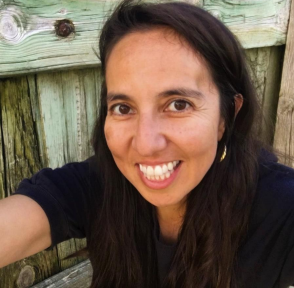
GENEVIEVE GUERRY

Genevieve is currently a PhD candidate at East Carolina University in the Integrated Coastal Studies program. She is a graduate researcher who has been working with a multidisciplinary team on environmental changes, conflict, and human migration. Currently, Genevieve is studying how emerging contaminants affect a coastal community, in Wilmington, North Carolina. She is using mixed methods to better understand the knowledge and stress of residents dealing with chronic contamination of per and poly-fluoroalkyl substances (PFAS). Before her PhD, Genevieve worked as a marine educator for Clemson’s Youth Learning Institute. This was some of her most meaningful work, which included educating and sharing in the wonders of the coast with school children from the Carolinas. Genevieve holds a master’s degree in Coastal and Ocean Policy from the University of North Carolina Wilmington. She worked as a graduate assistant, interned with the North Carolina Coastal Federation, and worked in the service industry during this time. She also holds a bachelor’s degree in Marine Science with an emphasis on Biology from the University of South Carolina.
RILEY LEWIS
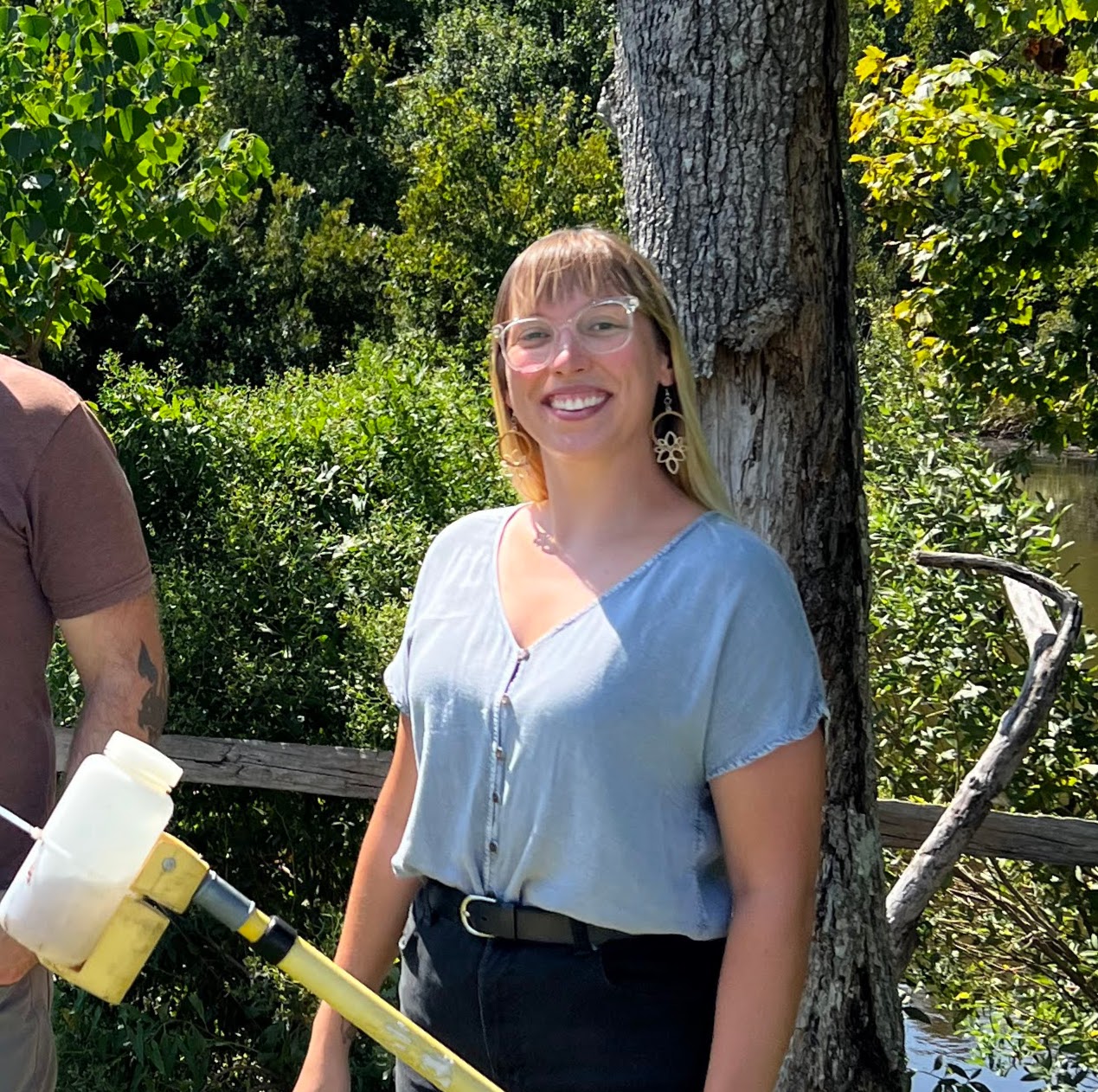
ALEXIS MAXWELL
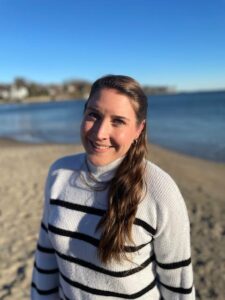
LISA SCHIAVINATO
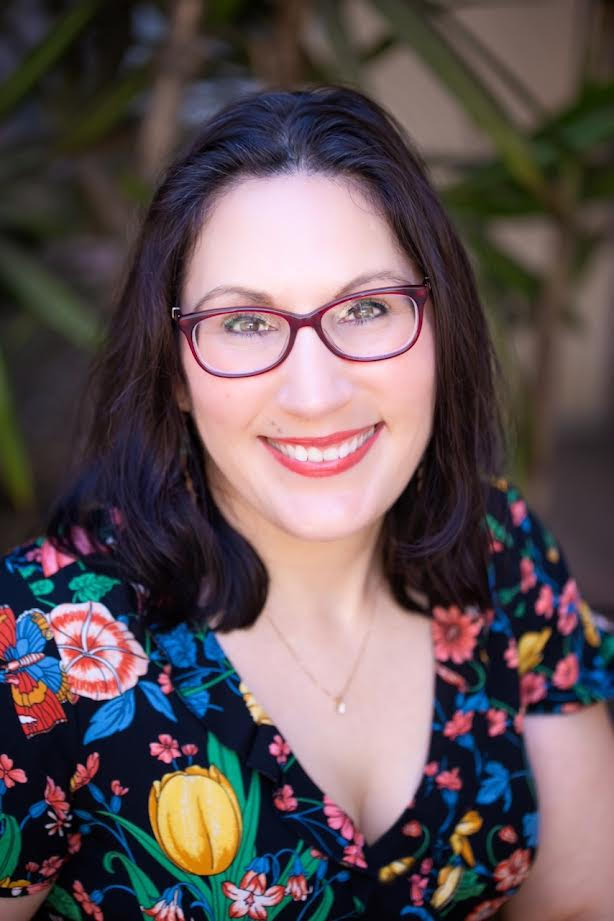
Lisa Schiavinato is a lawyer and ocean and coastal policy expert based in Southern California. Throughout her career, Lisa has gained broad experience in legal and policy research and analysis, program and project management, and organizational leadership. She has worked and published on a variety of environmental topics, from coastal resilience planning to the intersection of public beach access and private property rights, marine aquaculture, environmental restoration, and offshore energy. Lisa worked with Sea Grant programs from coast to coast and held adjunct positions teaching ocean and coastal law to graduate students and law students before joining the environmental nonprofit sector, where she currently serves as Managing Director for the Coastal States Stewardship Foundation. Lisa also has a long history with – and love for – The Coastal Society. She previously served on the Board of Directors and is also a Past President. In addition, she held program chair and conference co-chair positions for past TCS biennial conferences.
ANDREW WILSON
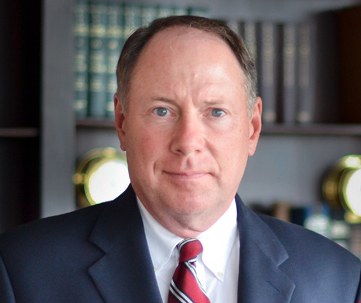
Andrew Wilson is an attorney and partner at Milling Benson Woodward LLP in its offices in Mandeville and New Orleans, La. He originally hails from Bristol, RI, an old seaport dating to the 1680’s, but travelled south to the Port of New Orleans in 1979 to study maritime and environmental law and never left. His maritime practice has involved ship collisions, vessel seizures and arrests, personal injury and death claims, sinkings and groundings, cargo damage and pollution claims. His environmental practice has evolved around fisheries, particularly the oyster industry, including off-bottom oyster culture permitting, drafting of oyster lease forms as well as legislation, regulatory rulemaking and litigation involving ownership of water bottoms in Louisiana territorial waters. Relatedly, he has also successfully defended the State of Louisiana in the two largest inverse condemnation or “takings” cases in Louisiana history involving multi-billion dollar claims by oyster fishermen who alleged their oyster leases were destroyed by the freshwater outfall from the Caernarvon coastal restoration river diversion project. That litigation resulted in an opinion from the Louisiana Supreme Court which redefined the public trust doctrine, now a critical consideration in Louisiana’s massive, ongoing coastal restoration efforts. He has also conducted successful natural resource damage recovery actions for damage to the State’s Public Oyster Seed Grounds.
Outside of litigation, he has served as a consultant to the State and private clients on coastal restoration issues, and is an External Advisory Board Member for the LSU Coastal Sustainability Studio, which addresses vulnerability to coastal hazards, habitat degradation, and global environmental change. He is also a frequent speaker on coastal restoration and fisheries issues; a Board member and Conservation Chair of the Orleans Audubon Society; and, a former Board member and Marine Insurance Committee Chair of the Maritime Law Association of the United States. He received his BA in History from St. Lawrence University and his JD and LLM in Environmental Law from Tulane Law School.
